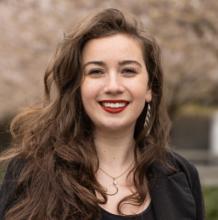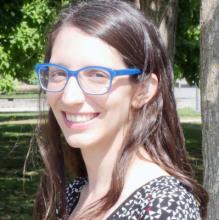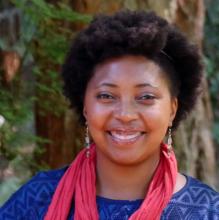Evan's research looks at the relationship between urban agriculture and social change. Using a reflexive community-based video methodology, this work explores how social movements in Canada and Brazil draw on urban agriculture in their formulation of collective action frames.
Research Description
I'm studying the relationship between urban agriculture and social change. Urban agriculture has been praised for offering a range of social and ecological benefits, but my work will look at how it might stimulate or stifle collective action towards food-system transformation. Employing a reflexive participatory video methodology, I will trace the processes by which social movement actors, policy makers and urban activists draw on constructions of urban agriculture in their understandings of problems in the food system as well as in formulating proposals for change.
What does being a Public Scholar mean to you?
I believe that there's something of a crisis on the horizon for the academy. Public scholarship is one way for researchers to reinvigorate academic practice to make our work more meaningful in a broader sense. I study social movements, and so a clear way to make my work feel more meaningful is to support social movements, and a clear way to accomplish this is through community-based public scholarship.
In what ways do you think the PhD experience can be re-imagined with the Public Scholars Initiative?
A concern I had to deal with before starting a PhD was: Would the work that I was going to pour so much of my life into reach anyone? Putting emphasis on public outreach can radically change that perception of the pursuit of higher knowledge in a PhD program.
How do you envision connecting your PhD work with broader career possibilities?
I love teaching, I love research and I love grassroots activism - pursuing a PhD allows me to combine these.
How does your research engage with the larger community and social partners?
Recently I've taken an interest in video based research work with an emphasis on pubic outreach, and it's through participatory video that I hope to translate the concerns and practices of local activism to the larger community.
Why did you decide to pursue a graduate degree?
Initially, I pursued graduate studies to dig a little deeper into questions around social injustice, but part way through an MA program I found a passion for teaching. After spending a few years as an instructor at the University of Manitoba's Department of Sociology, it felt pretty natural to continue onto a doctorate degree.
Why did you choose to come to British Columbia and study at UBC?
I was involved in some community organizing around urban agriculture in Winnipeg, and through that I got connected with a fantastic researcher, Dr. Annette Desmarais. She's a colleague of my current supervisor, Dr. Hannah Wittman, and suggested that I get in touch about going to Vancouver. Ultimately I'm here because of these two women and the research they do on food sovereignty.
Public scholarship is one way for researchers to reinvigorate academic practice to make our work more meaningful in a broader sense".




